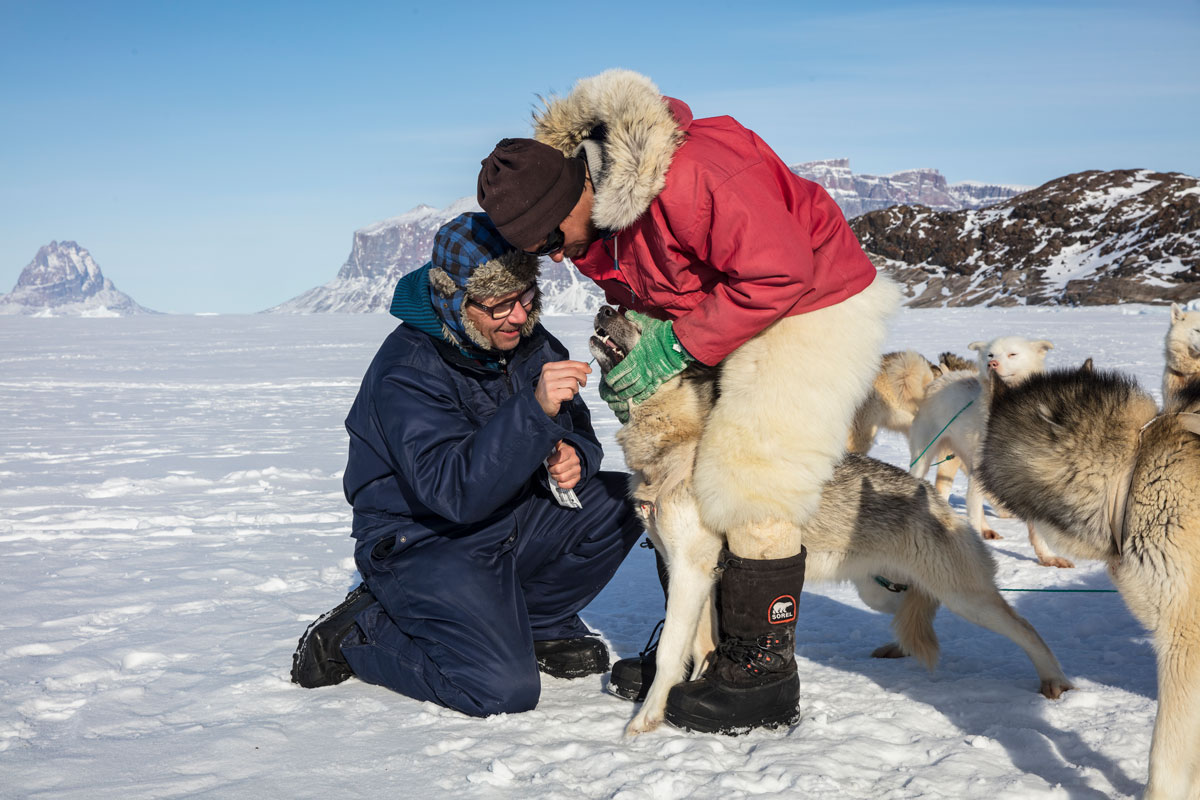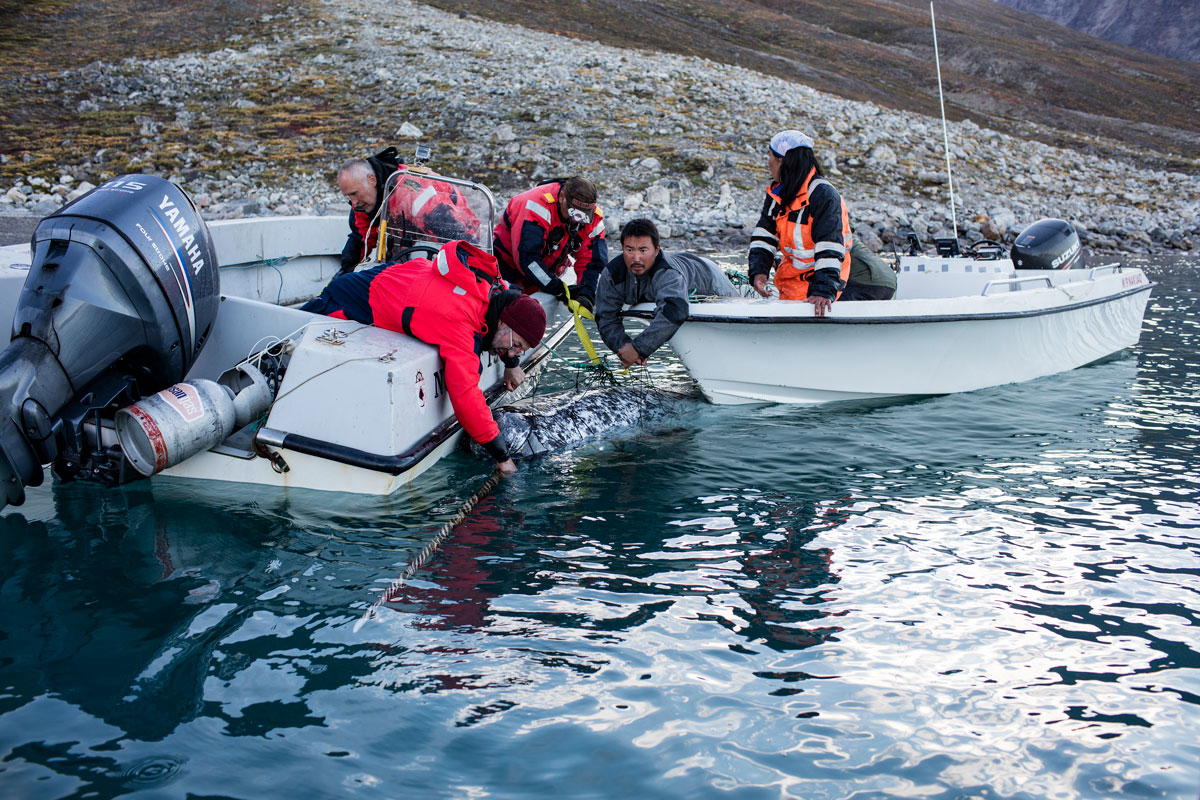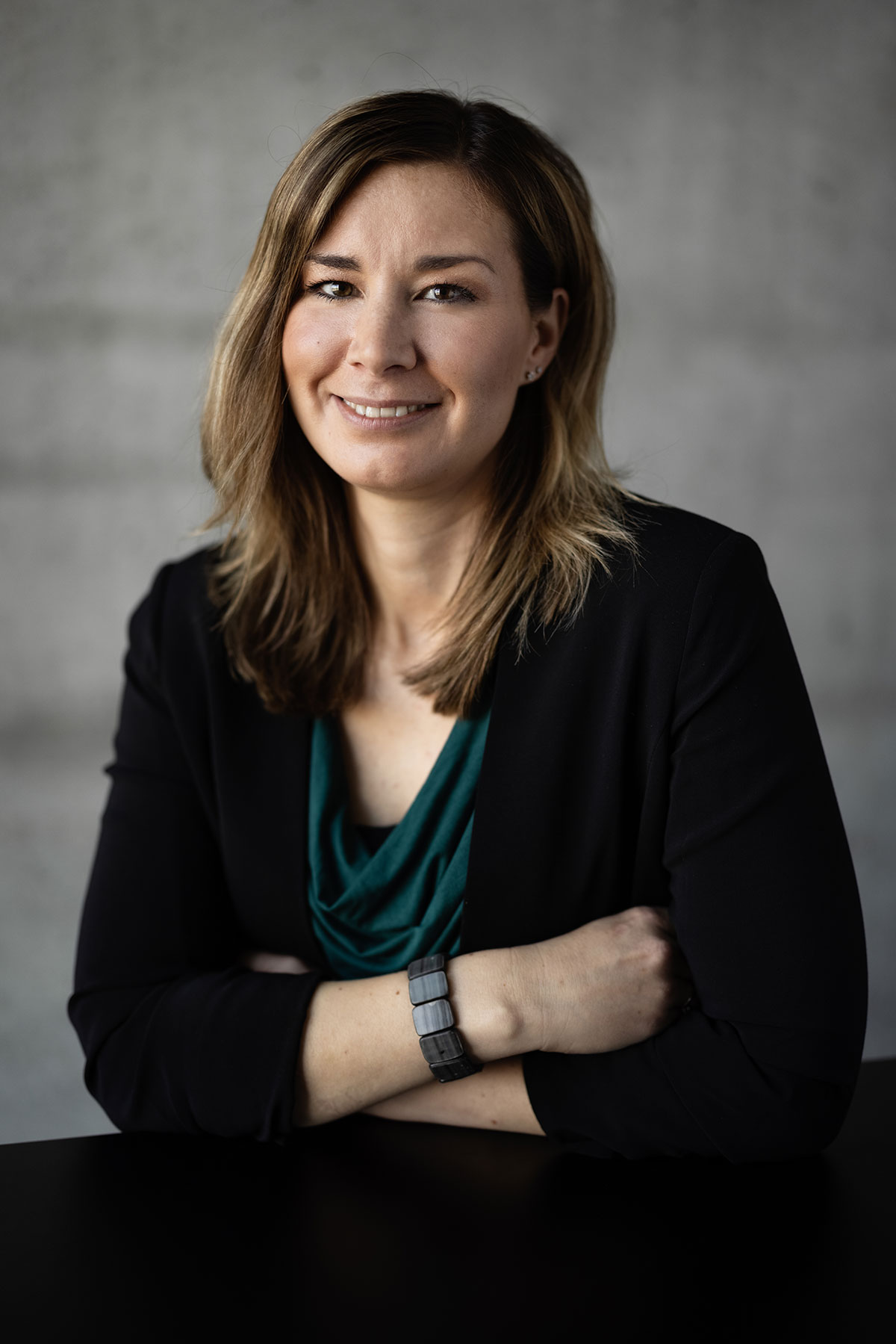Local anchorage of knowledge is key to sustainable development, and there is much to gain for both researchers and society.
By Anna-Sofie Skjervedal, Head of Secretariat, International Arctic Hub in Nuuk, Greenland
During 2021, an area as big as Sweden and Norway combined melted from the Greenlandic Ice Sheet. Researchers worldwide visit Greenland to study these extreme weather conditions and socioeconomic effects. Meanwhile, politicians struggle to navigate an ocean of information, while locals try to adapt new realities, with everyone strongly depending on each other to adapt. The International Arctic Hub is here to create a bridge between knowledge and action.
The year 2021 became a record year in regard to ice melting from the Greenlandic Ice Sheet. According to National Snow and Ice Data Center (NSIDC), the melt extent peaked at 872,000 square kilometers (337,000 square miles) on 14 August, melting an area as big as Sweden and Norway combined. In all the years we have had satellite observations, this scale of melt was only matched in 2012. Meanwhile, new studies from the Intergovernmental Panel on Climate Change (IPCC) state that within 30 years the Arctic will experience the first ice-free conditions during summertime.
Greenland is the Center of Attention
The changing climate has undoubtedly increased international attention to Greenland, where much important scientific knowledge is conducted. However, much of this knowledge is never absorbed into society. That is one of the reasons why the governments of both Denmark and Greenland decided to finance the International Arctic Hub locally anchored in Nuuk, Greenland, concentrating on building bridges between science and the community.
“We are trying to prevent what we call ‘fly in-fly out’ conditions. So many different researchers come to Greenland to conduct their research, collect data, and discovering ways to approach various topics and solutions. The researchers often have so little time, and many are uncertain as to how to approach, for instance, local community engagement or how to disseminate their valuable data,” says Anna-Sofie Skjervedal, Head of Secretariat, International Arctic Hub (Arctic Hub) in Nuuk, Greenland.
At the same time, coming to Greenland is not easy, as the infrastructure and logistics are difficult and expensive. Further, many of the researchers coming to Greenland do not have a local network.


